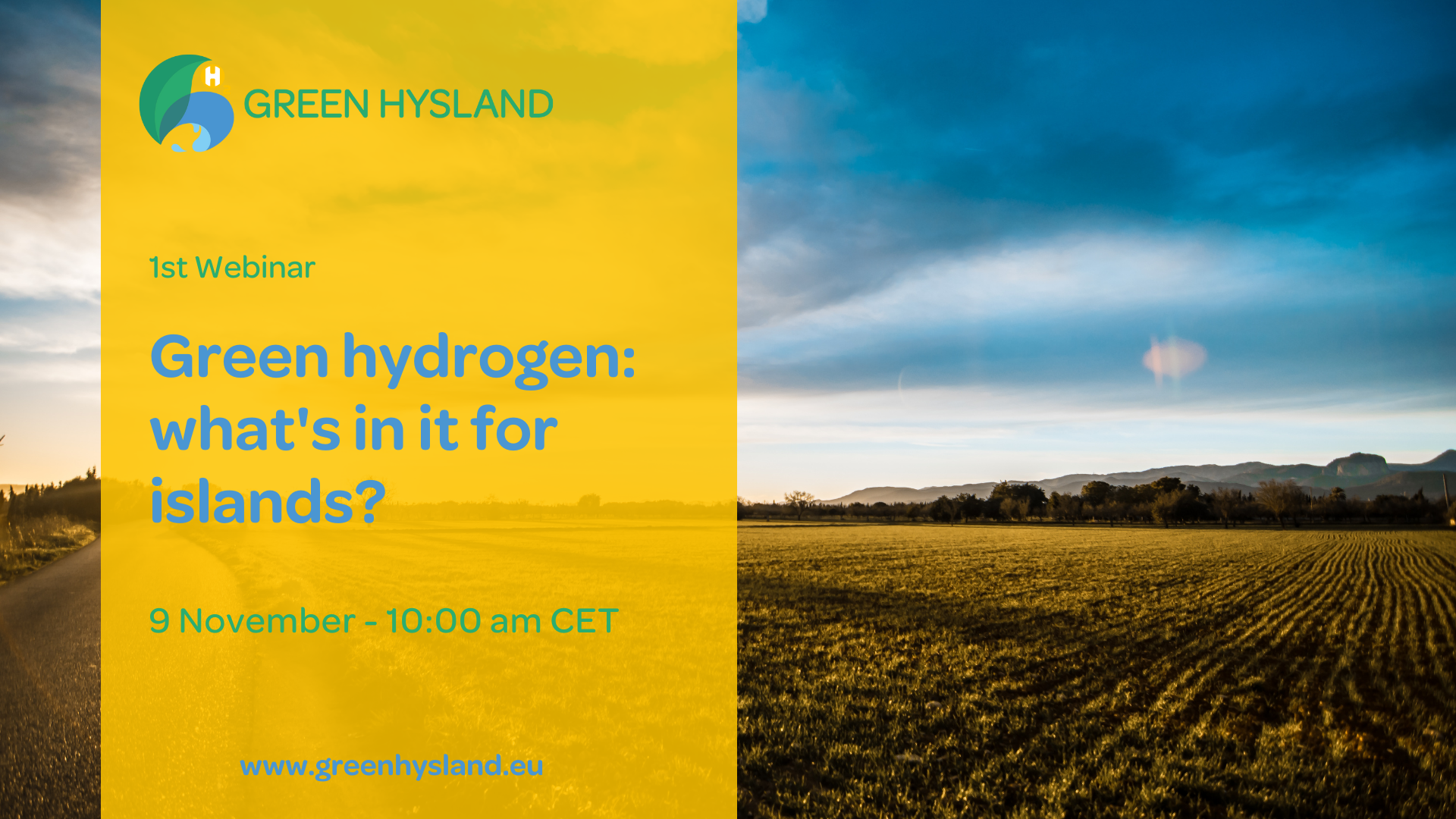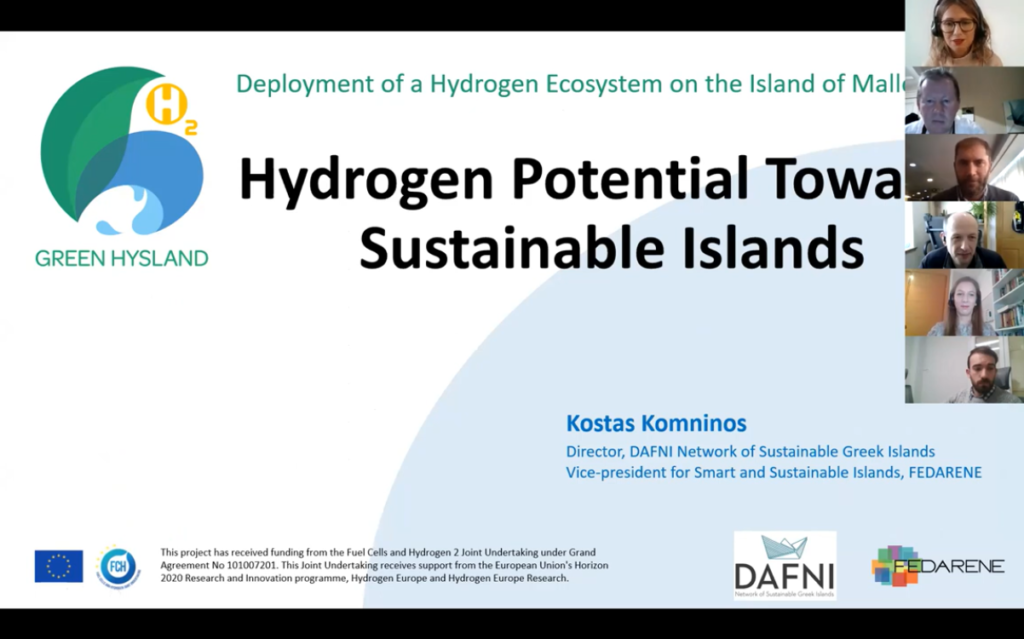First Green Hysland Webinar Completed!

On the 9th of November 2021, FEDARENE invited ENAGAS, Community Energy Scotland and the FCH JU for its first webinar.
As communication leader of the project, FEDARENE (the European Federation of Agencies and Regions for Energy and the Environment) is tasked to hold 1 webinar per year to boost the uptake of H2 technologies in EU islands. The first edition, which took place on the 9th of November 2021, was the occasion to present the project to FEDARENE islands, but also to discuss how to apply green hydrogen technology to different island contexts to accelerate decarbonisation pathways.
After a round of introductions from all participants, FEDARENE Vice-President for Smart and Sustainable Islands Kostas Komninos (GR) gave an insightful presentation on the Hydrogen Potential Towards Sustainable Islands. He reminded participants about the main challenges faced by islands (demand seasonality, lack of interconnection etc.) and presented some of the objectives for hydrogen projects in these remote regions. Notably, the possibility to create a complete H2 value chain from production to distribution, storage and end-use and to boost economic growth of islands. In any case, all H2 applications have to be developed according to the characteristics of each island.
Green Hysland was then presented by project coordinator María Jaén (Enagás, ES). She explained the context of the project, with the closure of the CEMEX cement plant in Lloseta in December 2018. This gave the impulse for the reindustrialisation of the island through green hydrogen production. María Jaén did not only present the context, concept and three pillars of the project, but already gave a few lessons learnt from the first months of operation. As an instance, green hydrogen ecosystems should involve committed stakeholders from the whole hydrogen value chain (renewables, production, transport, end users… but also regulation, standards, etc.).
Mark Hull, head of Innovation at the Community Energy Scotland (UK) was invited to share his experience on the hydrogen projects in Orkney, including the well-known BIG HIT project on which Green Hysland is based. Orkney is an archipelago of around 70 islands and a net exporter of renewable electricity. They have first started using green hydrogen and fuel cell technologies to decarbonise ferries and ports, then H2 Vans and, eventually built a full supply chain with BIG HIT. Mark also raised some of the challenges faced, such as difficulties in accessing specialist support (overcame through local training) and the interdependency of supply chain components which amplifies delays.
The fourth and final speaker of the session was Antonio Aguilo from the Fuel Cells and Hydrogen Joint Undertaking (FCH JU) who gave an overview of the various opportunities offered by the organisation for islands and regions (PDA, project calls, stakeholder engagement…). He also reminded that green hydrogen should not be seen as a competing technology to other solutions, but rather as a solution that has the potential to integrate renewables at larger scale and decarbonise supply and demand and full ecosystems in the long term.
Organisers, speakers and participants expressed high satisfaction towards the webinar and the discussions that took place. This first seminar was a private event in which only island stakeholders from the FEDARENE network and Green Hysland consortium were invited. Next online events might be open to the public so keep an eye on our website announcements!

